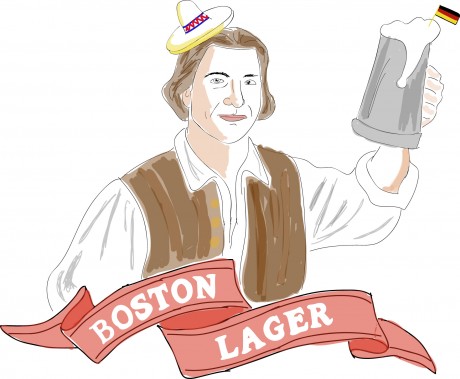This actually happened
“Hey guys. We’ve got a special during the Pistons and Red Wings games. Pints of domestic beers are a buck-fifty,†she says.
“Cool,†I say. “Domestic? Umm…†I look over at the line of taps, trying to make an educated guess at the ornate handles, “I’ll have a Sam Adams, please.â€
I instinctively reach for my ID in my back pocket, but she speaks up.
“Sam Adams isn’t a buck-fifty, it’s regular priced,†she tells me.
I think quickly about how to handle this and decide to follow a logical train of thought.
“Sam Adams isn’t considered a domestic?†I ask.
 She shakes her head and folds her lower lip under her top teeth without looking at me. She’s starting to get irritated. I already am.
She shakes her head and folds her lower lip under her top teeth without looking at me. She’s starting to get irritated. I already am.
“So, Sam Adams,†I begin, “which is made by the Boston Beer Company in Boston, Massachusetts, one of the original thirteen colonies, home of the New England Patriots–a beer named for an American who helped to organize the American Revolution–is not a domestic beer?â€
She is still shaking her head.
“So, what you’re saying is that the $1.50-a-pint deal doesn’t apply to all domestic beers, it applies to Miller, Miller Lite, Bud, Bud Light and Coors Light?†I ask, my incredulity a thick as the head on a glass of Guinness.
“Yeah, MGD, MGD64, Miller Lite, Budweiser, Bud Light, Coors Light, Labatt Blue, Blue Light-†I cut her off.
“Labatt and Labatt Blue Light qualify for this domestic deal?â€
She stops shaking her head and nods in the affirmative.
I decide I’m going to have an aneurysm.
“So, the beer with the giant red Canadian Maple Leaf and the ‘Imported from Canada’ slogan along the bottom is permissible as a domestic? But, the one made within our country’s borders is not?â€
“I guess.â€
I guess I missed the part where Samuel Adams was imported and Canadian beers were not.
